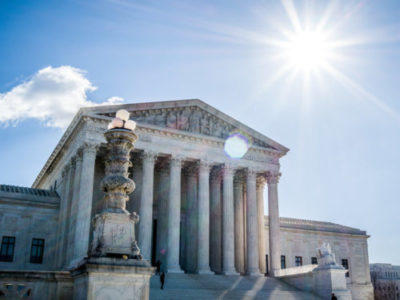
Caption
This past week, the Supreme Court heard arguments in two important cases around civil liberties and election law.
Credit: Georgia Health News

This past week, the Supreme Court heard arguments in two important cases around civil liberties and election law.
Anthony Michael Kreis, @AnthonyMKreis, professor of law, Georgia State University
Fred Smith, @fredosmithjr, professor of law, Emory University
Jim Galloway, @JimJournalist, former political columnist, Atlanta Journal-Constitution
Lori Ringhand, professor of law, University of Georgia
1. The 11th Circuit finalized its decision to eliminate the special master's position in the Mar-a-Lago investigation.
2. Congress passed the Respect for Marriage Act, which recognizes same-sex and interracial marriage.
/
LISTEN: Anthony Michael Kreis on the First Amendment case against Colorado's law.
4. The Supreme Court is hearing a case that could determine how much power state legislatures have over federal elections.
/
LISTEN: Lori Ringhand on how "independent state legislature theory" could impact the 2024 presidential race.
Monday on Political Rewind: The AJC's Patricia Murphy joins the panel.